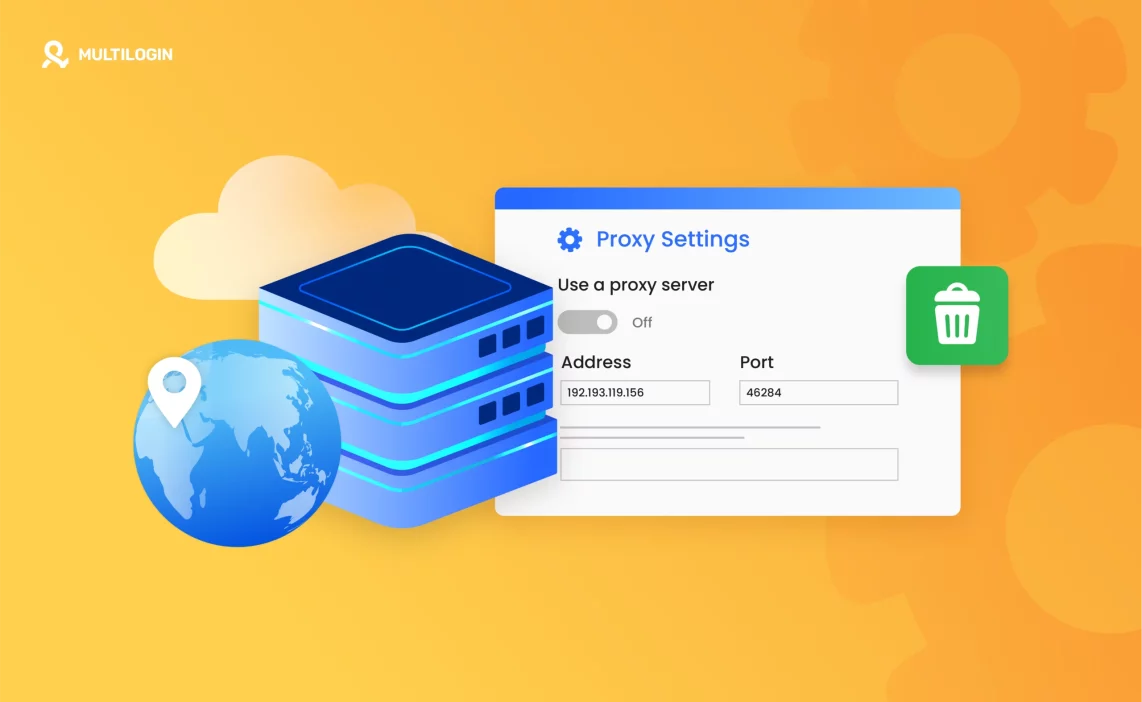Platforms have never been more aggressive about detecting multiple accounts. From ad networks to marketplaces to AI platforms like ChatGPT, their detection systems can link accounts in seconds using browser fingerprints, IP data, and system telemetry.
This is why antidetect browsers exist — and why the core engine they run on matters more than most people realize. Two notable names are Orbita, the custom Chromium-based engine from GoLogin, and Stealthfox, a Firefox-based browser core that’s part of the Multilogin ecosystem.
Here’s the twist: Stealthfox isn’t just another antidetect browser. It’s one of two stealth engines built by Multilogin (the other being Mimic, a Chromium-based core), designed to deliver unmatched fingerprint realism and detection resistance.
In this guide, we’ll break down Orbita vs Stealthfox, show how Multilogin’s Mimic and Stealthfox outperform basic browser cores, and help you decide which setup fits your multi-accounting goals in 2025.
Quick Comparison Table
Feature | Orbita (GoLogin) | Stealthfox (Multilogin Core) |
Engine | Chromium-based | Firefox-based |
Core Tech | Built by GoLogin | Built by Multilogin as core stealth engine |
Fingerprint Control | Manual adjustments (WebGL, fonts, UA, timezone) | Advanced spoofing with auto-synced fingerprints matched to proxy location |
Profile & Team Tools | Local/cloud profiles via GoLogin | Enterprise-grade profile sync, team permissions, activity logs |
Proxy Integration | Manual setup per profile | Automatic fingerprint alignment to proxy IP & geo |
Automation Compatibility | API, Puppeteer/Selenium | Full Puppeteer, Selenium, Playwright support |
Orbita (GoLogin) – Familiar & Flexible
Orbita is GoLogin’s custom Chromium fork, built to emulate Chrome’s look and feel while removing tracking mechanisms and enabling fingerprint adjustments.
Strengths:
- Chromium-based, so it works with nearly all modern sites
- Cross-platform: Windows, macOS, Linux
- Easy to tweak key fingerprint parameters (WebGL, Canvas, fonts, timezone, hardware specs)
- Lightweight and familiar for Chrome users
Limitations:
- Fingerprint realism depends on manual configuration
- Team collaboration features are limited compared to enterprise-grade solutions
- No automatic proxy-fingerprint sync, meaning mismatches can happen if you’re not careful
Orbita works best for solo operators or small teams who want a balance of familiarity and basic stealth control.
Stealthfox – Multilogin’s Firefox Stealth Engine
Stealthfox is one of Multilogin’s proprietary antidetect browser cores, built on a customized Firefox engine. It’s designed for situations where Chromium-based traffic might trigger suspicion, offering an alternative identity layer that blends in with genuine Firefox users worldwide.
Key Benefits:
- Enterprise-grade fingerprint spoofing that automatically adjusts to your proxy’s IP, location, and timezone
- Locked-in profile engine per session for consistency
- Seamless integration with Multilogin’s encrypted cloud profile system
- Robust automation compatibility with Puppeteer, Selenium, and Playwright
- Built for high-volume, multi-user operations with full team permission control
With Stealthfox, you don’t just get a Firefox antidetect browser—you get it embedded inside a full-scale multi-account management platform.
Mimic – The Other Multilogin Core
While this comparison focuses on Orbita vs Stealthfox, it’s worth noting that Multilogin also offers Mimic, a custom Chromium-based engine. Mimic provides the same enterprise-grade fingerprint protection as Stealthfox, but with Chromium compatibility for sites that expect a Chrome-like environment.
Between Mimic and Stealthfox, Multilogin users can switch engines based on platform needs—something Orbita can’t match.
Fingerprint Control & Realism
Orbita:
- Lets you manually adjust major fingerprint properties
- Great for tweaking to match platform needs
- Relies on user input to maintain realism
Stealthfox (Multilogin):
- Automatically syncs fingerprints with proxy location and system attributes
- Prevents inconsistent setups that detection systems look for
- Maintains long-term profile stability, even across multiple sessions
Winner: Stealthfox for automation and accuracy; Orbita for hands-on manual tuning.
Profile Management & Collaboration
Orbita:
- Supports local and cloud storage for profiles
- Profile sharing is possible but basic
- Lacks advanced permission systems for larger teams
Stealthfox (Multilogin):
- Profiles stored in encrypted cloud with instant sync across devices
- Role-based permissions for teams
- Full activity logging for accountability
If you’re running more than a handful of accounts or working with multiple people, Stealthfox inside Multilogin is in another league.
Proxy Handling
Orbita:
- Manual proxy assignment per profile
- Requires matching timezone and fingerprint manually to avoid detection issues
Stealthfox (Multilogin):
- Auto-adjusts fingerprint settings to match your proxy’s IP, geo, and timezone
- Reduces human error and speeds up deployment
For scaling operations, automatic alignment is a huge time-saver.
Automation Capability
Orbita:
- Supports API, Puppeteer, and Selenium via GoLogin’s integration
- Better suited for smaller-scale automation tasks
Stealthfox (Multilogin):
- Native compatibility with Puppeteer, Selenium, and Playwright
- Designed for heavy-duty bot or scraping operations without triggering bans
Which Should You Choose?
Choose Orbita if you:
- Need a lightweight, Chromium-like antidetect browser
- Prefer manual fingerprint tweaking
- Operate solo or in a very small team
Choose Stealthfox (Multilogin) if you:
- Need both Firefox and Chromium stealth options (via Mimic)
- Work in a team environment with multiple devices and operators
- Want automation-ready profiles and proxy-based auto fingerprint alignment
Manage large-scale, high-value multi-account operations
Ready to Try the Best? No Risk, Big Upside
Why settle for half-measures or take risks with your privacy and accounts?
Frequently Asked Questions About Orbita vs. Stealthfox Browser
Based on their marketing materials, Orbita’s interface appears more beginner-friendly. However, Multilogin at €5.85/month offers better value with included proxies and comprehensive support to help beginners succeed.
Neither Orbita nor Stealthfox include proxies, requiring additional monthly expenses. Multilogin includes residential proxy traffic in all plans, making it more cost-effective.
While both claim fingerprint protection, neither provides the detailed documentation about their methods that Multilogin offers. Multilogin’s daily testing on 50+ platforms demonstrates ongoing commitment to staying undetected.
Final Verdict - Making the Smart Choice for 2025
Orbita is a strong choice for small-scale antidetect needs with a hands-on approach. But if your operation demands scalability, automation, team control, and advanced stealth, Multilogin’s Stealthfox (and Mimic) engines are purpose-built to keep you safe and efficient at any scale.
Whether you’re managing e-commerce stores, running affiliate campaigns, farming crypto airdrops, or scaling social media operations, choosing the right antidetect engine is crucial for long-term success.



